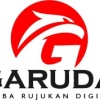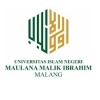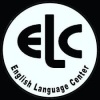Utilizing Canva Platform to Improve Students’ Achievement in English Learning and Teaching
Abstract
Full Text:
PDFReferences
Roshid, M., & Chowdhury. R. (2013). English language proficiency and employment: A case study of Bangladeshi graduates in Australian employment market. Mevlana International Journal of Education, vol. 3, no. 1, pp. 68–81, doi: 10.13054/mije.13.06.3.1.
Pandey, G. (2021). The Impact and Issues of Online Teaching-Learning Program: An Analysis. RESEARCH REVIEW International Journal of Multidisciplinary, vol. 6, no. 6, doi: 10.31305/rrijm.2021.v06.i06.005.
Lansfor, Lewis & Vallance, D. (2011) Oxford English for Careers - Oil and Gas. Oxford: Oxford University Press.
Susilawati, A. & Chairunnisa, S. (2019). Investigating the effect of Canva on students’ writing skills. ENGLISH REVIEW: Journal of English Education, 7(2), pp. 169–176, doi: 10.25134/erjee.v7i2.1800.
Costley, K. C. (2014) The Positive Effects of Technology on Teaching and Student Learning.”
Prosiding Seminar Nasional Penelitian dan Pengabdian, Penelitian dan Pengabdian Inovatif pada Masa Pandemi Covid-19. (2021).
W. Hashim, H. A. Hashim, E. Wassan, A. Hashim, and H. A. (2015, June 7). Selection of Appropriate Media and Technology for Distance Education Digital control View project Selection of Appropriate Media and Technology for Distance Education, from https://www.researchgate.net/publication/310004744
A. P. Gehred (2020). Canva. Journal of the Medical Library Association, 108(2). doi: 10.5195/jmla.2020.940.
Swan, K. (2003). Learning effectiveness: what the research tells us. In J. Bourne & J. C. Moore (Eds) Elements of Quality Online Education, Practice and Direction. Needham, MA: Sloan Center for Online Education, 13-45.
Ampa, A. Tenri. (2020). Media Pembelajaran Audio Visual Berbasis Aplikasi Canva. Jurnal Pendidikan Ekonomi Undiksha. 12(2) DOI: https://doi.org/10.23887/jjpe.v12i2.30179
D. Maynastiti, V. Serevina, and I. Sugihartono. (2020). The development of flip book contextual teaching and learning-based to enhance students’ physics problem solving skill, in Journal of Physics: Conference Series, Institute of Physics Publishing, doi: 10.1088/1742-6596/1481/1/012076.
J. W. Creswell, (2014). Research Design. Qualitative, Quantitative, and Mixed Methods Approaches. Lincoln: University of Nebraska,
A. G. Bluman. (2012). Elementary Statistics. A Step by Step Approach. , Eighth Edition. New York: Mc Graw Hill.
J. M. Harackiewicz, J. L. Smith, & S. J. Priniski (2016 ). Interest Matters: The Importance of Promoting Interest in Education. Policy Insights Behav Brain Sci, 3(2), 220–227. doi: 10.1177/2372732216655542.
S. F. Omar, H. S. A. Nawi, T. S. T. Shahdan, R. W. M. Mee, L. S. Pek, & F. S. C. Yob, (2020 ) Interactive language learning activities for learners’ communicative ability. International Journal of Evaluation and Research in Education, 9(4), 1010–1016, doi: 10.11591/ijere.v9i4.20605.
DOI: https://doi.org/10.18860/jeasp.v6i2.24179
Refbacks
- There are currently no refbacks.

This work is licensed under a Creative Commons Attribution-ShareAlike 4.0 International License.







Editorial Office:
Pusat Pengembangan Bahasa
Program Khusus Pengembangan Bahasa Inggris (PKPBI)
Universitas Islam Negeri Maulana Malik Ibrahim Malang
Gedung C lantai 1
Jl. Gajayana No 50 Kota Malang, Jawa Timur, Indonesia
Kode Pos 65144, Telp/Fax : (0341) 570872
Email: jeasp@uin-malang.ac.id
JEASP : Journal of English for Academic and Specific Purposes is licensed under a Creative Commons Attribution-ShareAlike 4.0 International











